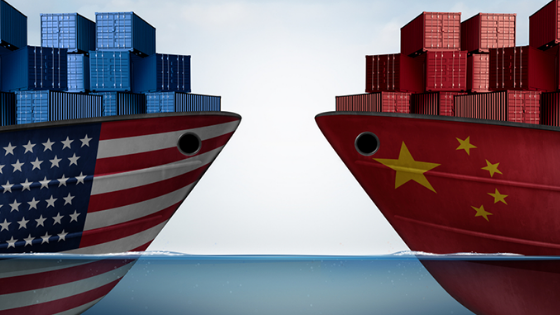Editor’s note: Curtis Ellis hits the nail on the head.
American officials are in Beijing for the latest round of negotiations over Red China’s trade war against the United States.
[Curtis Ellis | February 14, 2019 | Daily Caller]
China has a proposal to end the dispute with the Trump administration: transform the United States into a Third World country.
China’s negotiators are magnanimously offering to reverse 200 years of history in which America developed from an agrarian colony to industrial powerhouse. We’ll see if there are any takers on this side of the negotiating table.
Let’s review the difference between developed economies and Third World economies: Third World economies export raw materials, such as agricultural products and natural resources. Advanced economies process raw materials into value-added manufactured goods and sell these goods to the world.
Throughout history, the great industrial powers scoured the globe for raw materials to transform into fiber, steel, engines and dynamos.
Great Britain became the leading industrial power in the 18th and 19th centuries by encouraging imports of raw materials to feed its mills, furnaces and workers, and discouraging imports of finished goods, which it preferred to make itself.
King George saw the American colonies as a source for raw materials and a market for the products of British factories.
The colonists rebelled, we built our own factories and eventually overtook Britain to become the greatest industrial power of all time. We had the added advantage of an abundance of raw materials within our borders.
Resource-poor Japan copied the British and American playbook to pull itself from the radioactive ashes of Hiroshima to achieve first world status. The rest of the Asian “tiger economies,” including China, followed suit.
Americans used to sneer at economies that depended on selling what comes out of the ground. We saw the extreme inequality of places like Saudi Arabia and the Persian Gulf states as a byproduct of dependency on resource exports, the “oil curse” or “resource curse.”
But that’s precisely where our economy is now headed. After fifteen years of one-way free trade with China (we drop our barriers to their exports even as they block our exports to them) America’s top export to Beijing is soybeans. They sell us cell phones, computers, appliances, auto parts — and we sell them soybeans.
Now China says it will reduce its trade surplus with us by purchasing more from us — more soybeans.
But there’s more bad news.
In the last few years, natural gas and oil from the fracking boom have made America the world’s number one energy producer. Looking at it one way, this resource should give American manufacturers an edge over Asian manufacturers. With natural gas prices higher in Asia than in the U.S., our cheaper energy offsets cheaper Asian labor.
But here’s the rub: China doesn’t want us to use that energy to fuel our own industries, homes and vehicles. They want to buy America’s raw energy and use it to fuel industrial furnaces in China. The Chinese negotiators try to make it sound like a great deal: We’ll agree to reduce the trade deficit — by buying your gas and oil.
We would end up signing long term contracts to sell natural gas to communist China so its people could make stuff to export to the U.S. Even if we wanted to put American energy resources to work for Americans in Pennsylvania, Ohio or anywhere else, we couldn’t.
Sadly, the investment bankers and stock speculators on Wall Street are so eager for a deal they are ready to accept China’s offer and call it victory.
But under China’s plan, the U.S. will be essentially a Third World colony, transferring its natural resources to “the workshop of the world” on the other side of the ocean. America would export farm goods and raw materials, and import manufactured goods.
This is what the American economy looked like in 1775. Great Britain called itself the workshop of the world — and it’s what our ancestors fought a revolution to end.
So why on earth would anyone want to go backwards?
Thomas Jefferson said, “Merchants have no country. The mere spot they stand on does not constitute so strong an attachment as that from which they draw their gains.”
The free traitors of Wall Street favor global interests over national interests, and foreign companies over American companies.
The Wall Street globalists have bought members of both parties in Congress.
And they don’t care if China turns America into a Third World colony.
Read the original article here.













